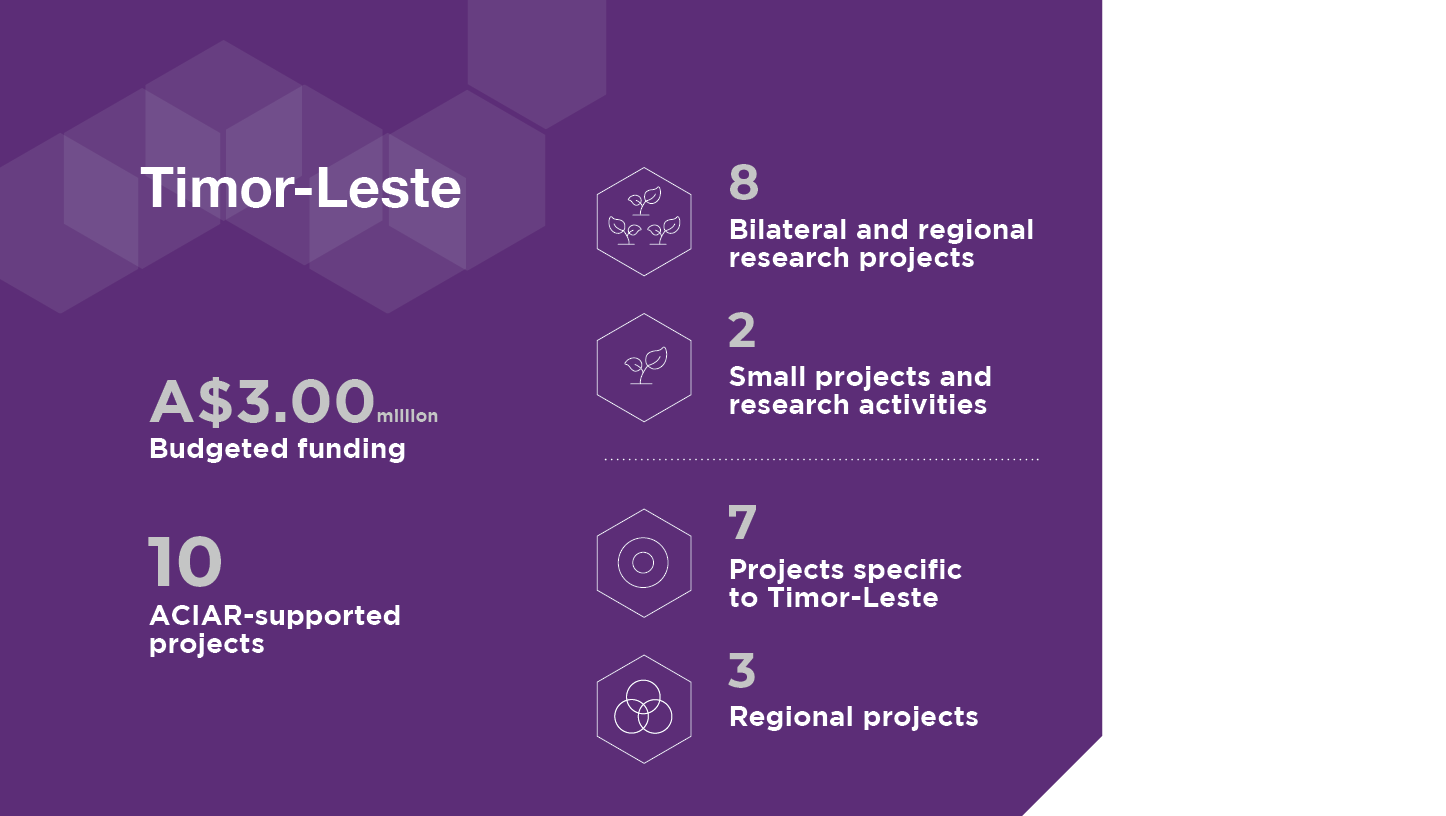While Timor-Leste has made strong progress in recent years, some development indicators remain stubbornly entrenched.
With 70% of the population living in rural areas, there is a heavy reliance on incomes from semi-subsistence and seasonal food cropping, mixed with small-scale animal husbandry and varying degrees of foraging for wild crops and game. Despite many recent improvements in a range of essential services, there is a high prevalence of poverty, with more than 50% of the population facing some level of food and food nutritional insecurity.
Improving productivity, diversity and returns from agriculture, livestock and fisheries, as well as the functioning of food systems, will remain crucial to overcoming these challenges.
The reasons for constrained on-farm crop and animal production and productivity are complex and varied. They include highly variable weather conditions affecting crop establishment and subsequent yields, infertile soils, limited availability of and access to agricultural inputs (especially given a weak private sector), low capital for investment, pests and insects causing crop losses pre-harvest and post-harvest, labour constraints at critical times and limited market demand for agricultural products beyond local consumption. Critically, lack of access to credible, locally relevant and implementable science-based advice is a key constraint cutting across all areas.
Country priorities
Since 2001, ACIAR has had a strong program of
projects in Timor-Leste, some of which have been long-term (such as Seeds of Life). The time is now right to pivot our relationship to one based on an integrated research partnership between the 2 countries, not just a series of projects. Following the opening of the ACIAR country office in Dili in 2022, ACIAR is working with key partners in Timor-Leste to establish the basis of new and long-term partnerships, using as a starting point the analysis of food systems vulnerabilities published in November 2020. Opportunities for future research to contribute to the greater resilience of Timor-Leste food systems include:
- improved social protection measures for vulnerable households
- a renewed focus on the productivity of smallholder agriculture with gradual intensification and improved feed and biosecurity regimes
- greater efforts to expand private sector market developments and increase employment
- greater focus on education and relevant technical training to increase the availability of skilled graduates.
The opportunities for ACIAR to support these priorities will be investigated in more detail this year. Focus areas may include research in coastal fisheries, agroforestry, livestock (especially cattle and poultry) and cropping systems, as well as seeking opportunities for trilateral research collaboration with Indonesia.
2023–24 research program
The research program addresses our high-level objectives, as outlined in the ACIAR 10-Year Strategy 2018–2027, as well as specific issues and opportunities identified by ACIAR and our partner organisations.
The following table lists ACIAR-supported projects active in Timor-Leste during 2023–24.
Country Manager, Timor-LesteMr Luis de Almeida Research Program ManagersCrops: Dr Eric Huttner Fisheries: Dr Chris Barlow & Dr Ingrid Van Putten Horticulture: Ms Irene Kernot Livestock Systems: Dr Anna Okello Social Systems: Dr Todd Sanderson Soil & Land Management: Dr Robyn Johnston & Dr Steven Crimp |
